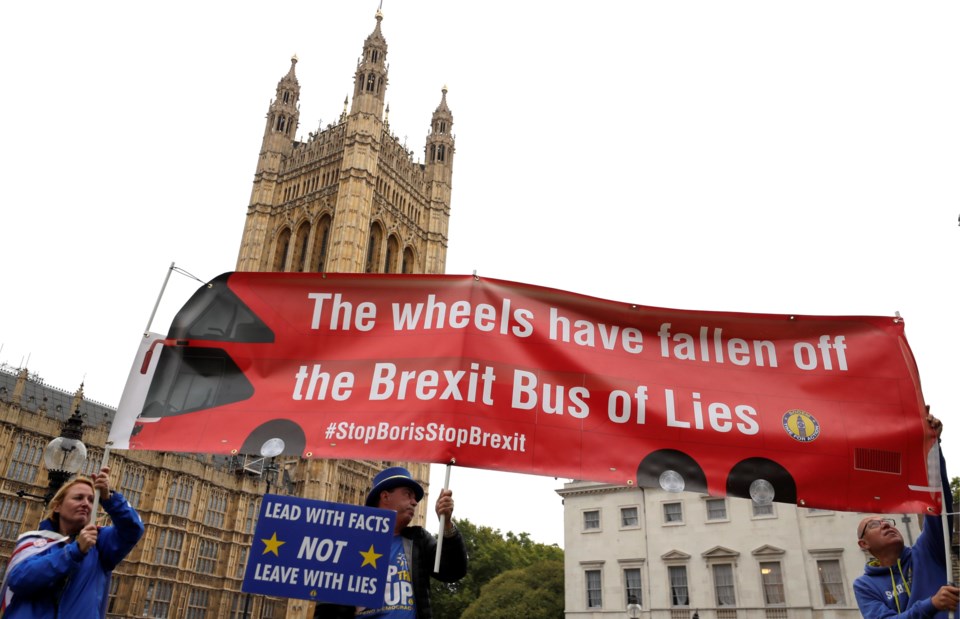With England engulfed in its greatest constitutional crisis since the Civil War, it appears the media in that Sceptred Isle have totally abdicated their responsibilities.
Even well-regarded newspapers such as the Times of London or the Daily Telegraph are treating the meltdown like a soccer match. It’s all about who won and who lost, who scored and who got sent off.
Nowhere in sight is there a knowledgeable appreciation of the constitutional principles underlying the crisis, principles that go to the very heart of Britain’s system of government, and of ours.
What follows is an attempt to shine at least some light on the legal issues at stake. It is not about whether Britain should remain in the European Union or leave. Neither is it an assessment of Prime Minister Boris Johnson’s talents or failings.
The question is whether Parliament has the right to impose its own foreign policy on a recalcitrant government. For that is what has happened.
When he was elected party leader in July, Johnson promised to take Britain out of the EU by Oct. 31, unless a satisfactory agreement could be negotiated with Brussels. The House has now told him he cannot do that.
Moreover, Parliament accomplished this by imposing legislation of its own drafting. That, I believe, is unprecedented. The role of Parliament is to hold the government to account, not to supplant it.
It’s true there have been occasions when the House of Commons passed a statute affecting foreign affairs. For example, the treaty enabling Britain to enter the EU, and the 1975 referendum on continued membership, were each voted on by the House.
Yet in both cases, the legislation empowering these policies was presented to Parliament by the government of the day. Neither originated in the House.
It is also true that MPs can table private members’ bills. However, these usually deal with issues of narrow or local interest, and few of them succeed.
I know of no case where a private member’s bill, proposing a fundamental change in foreign policy, passed despite the objections of government.
So yes, MPs can vote against policies they dislike, even defeat administrations through non-confidence votes. But what they cannot do is usurp the prerogatives of government. That is the equivalent of a coup.
Why does any of this matter? Because in our system of governance, a duly elected administration must be assured the ability to enact its policy, or give way to one that can.
If Parliament seizes that power into its own hands, you have duelling authorities, and down that road lies chaos, as the Brits can now attest. It is this chaos that has rendered mute England’s great newspapers.
If we want to see what happens when the legislature ignores the executive and acts on its own, we need look no further than our neighbour to the south.
The American constitution explicitly divides the powers of governance between the administration and Congress. And what a mess that has created.
Each can, and routinely does, try to end-run the other. But the result is not “a more perfect union,” as the U.S. constitution proclaims.
The result is a series of standoffs. The president proposes a budget. Congress promptly discards it and comes up with its own version, stuffed with handouts for its members.
Even the most insignificant House representative gets a pig barn for his district. Even the most incompetent senator gets a reprieve for her long-redundant military base.
This is what happens when power is divided. Greed multiplies.
It is why the U.S. has recorded only a handful of surpluses since Andrew Jackson was president. It’s why the country’s social security system is headed for insolvency and nothing gets done about it.
It’s also why Donald Trump is president. Voters were sick of the permanent gridlock in Washington.
It is with just such a dysfunctional arrangement that Britain’s parliamentarians are toying. They should beware. The last time this sort of thing happened, Oliver Cromwell applied his own remedy.



